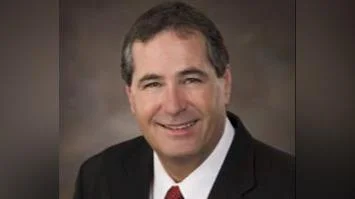Jan Wangler, Executive Director of the North Dakota Businesses United | North Dakota Businesses United
Jan Wangler, Executive Director of the North Dakota Businesses United | North Dakota Businesses United
North Dakota Business United Director Jan Wangler said that last month's ruling in the Energy Transfer vs. Greenpeace lawsuit should have resulted in more significant consequences for the nonprofit given its role in the Dakota Access Pipeline (DAPL) protests of 2016-2017, according to an April 9 statement Wangler shared with Central ND News.
On March 19, Morton County jurors awarded Energy Transfer, the operator of Dakota Access Pipeline, $666.8 million in damages against Greenpeace on claims of trespass, nuisance and defamation stemming from the organization's involvement in protesting pipeline construction.
"I was pleased to learn that Greenpeace was being held responsible," Wangler told Central ND News. "I’m just somewhat disappointed that really the only punishment is monetary in nature. It should’ve impacted their organization on a much deeper level. I’m not sure what that might be, but it should have somehow impacted their ability to inflict this type of chaos on others in the future. It wasn’t their fight to fight and they should’ve stayed away."
According to Legal Newsline, Trey Cox, lead attorney for Energy Transfer, called the verdict "resounding."
"It is a day of reckoning and accountability for Greenpeace," Cox said outside the courthouse after the verdict was announced. "It is also a day of celebration for the Constitution, the state of North Dakota, and Energy Transfer."
Greenpeace leadership said the organization would appeal the verdict, arguing the ruling aims to suppress environmental activism and free speech, the Wall Street Journal reported.
Regarding the impact of the verdict, Wangler said that North Dakotans will continue paying close attention to protests in their state.
"We recognize who the paid protesters are for any given event now and know what to pay attention to and what to ignore. Let’s hope it’s lessons learned but never again needed," she said.
In April 2024, the U.S. House Committee on Natural Resources held a hearing titled "Examining the Influence of Extreme Environmental Activist Groups in the Department of the Interior."
The hearing addressed concerns about activist organizations influencing public policy and emphasized the need for oversight to ensure that environmental advocacy does not impede lawful economic activities, as it did for the DAPL.
MPR News reported the DAPL protests incurred over $22 million in expenses for state and local taxpayers in North Dakota, with state officials confirming that managing the protest site required mutual aid from 91 public safety agencies in the state, along with 33 out-of-state agencies.
The strain on state and local law enforcement is at the center of an ongoing lawsuit brought by the State of North Dakota against the Army Corps of Engineers.
"We don’t take lightly to the type of treatment endured during the DAPL protests, and we are now more aware of the impact of paid protesters," said Wangler. "We won’t be as naive in the future to those possibilities, but for now we will shake it off and go back to our lives, as we do with any other struggle or tragedy. We are resilient like that."
Jan Wangler serves as Executive Director of North Dakota Business United. In this capacity, she oversees various organizational functions including establishing a Board of Directors and coordinating strategic goals through legislative updates.






 Alerts Sign-up
Alerts Sign-up